Freight ships lined up to stop, trains honked and drove into the freight yard station, trucks carrying containers with the words “Chongqing Xinou”, “Yixin Europe”, “Xi’an Port” and other words traveling between Mercedes Benz… This port on the banks of the Rhine River is bustling with activity.
Duisburg Port is the main port area of Duisburg in the western state of North Wales, Germany, and is one of the important stations for the China Europe freight train. At the train platform, Chinese and German leaders witnessed a train departing from Chongqing, China, slowly entering with a full load of goods.
In his view, the China Europe freight train “opened a new chapter of interconnection between China and Duisburg.”.
For the past decade, the “Steel Camel Team” has been flowing continuously, bringing business opportunities to the local area and injecting vigorous momentum into economic and trade cooperation and cultural exchanges between China, Germany, and Europe.
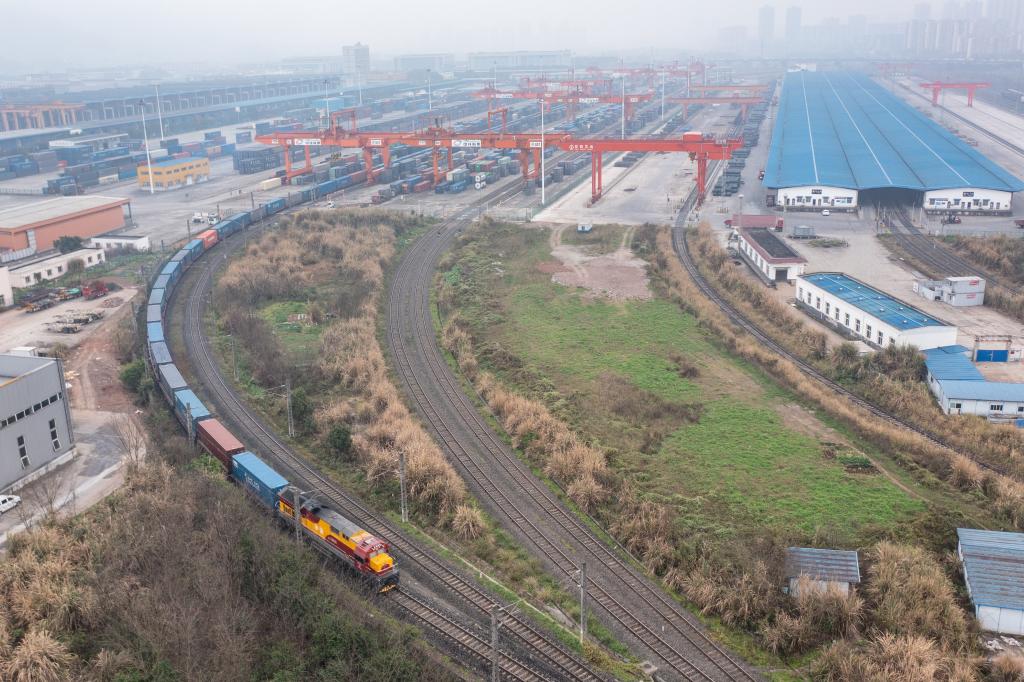
“Let’s work together more closely”
The port of Duisburg is located at the confluence of the Ruhr and Rhine rivers. It first formed a prosperous cargo distribution center in the 12th century and later became the largest and most functional inland port in Germany.
Linke believes that with the China Europe Express, Duisburg Port can give full play to its unique inland waterway land port intermodal transport and logistics service capabilities. Over the past decade, it has developed into an important logistics hub in Europe to jointly build the “the Belt and Road”, and has established an important gateway position in Eurasian logistics and trade.
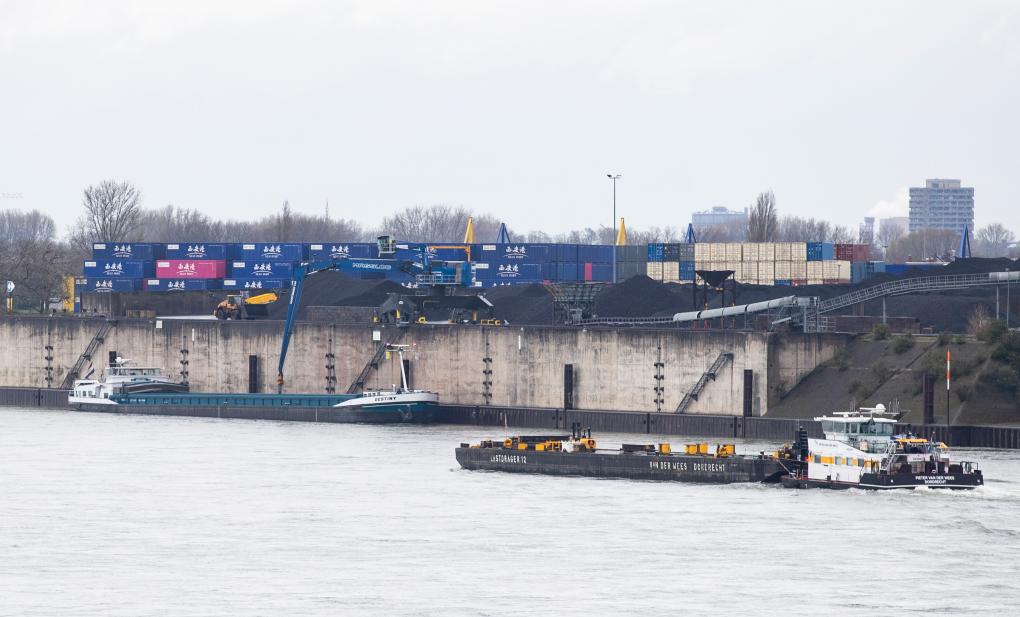
Ten years ago, freight train driver Jiang Tong drove the first leg of that train in China. Starting from Chongqing, passing through Xinjiang, crossing Asia and Europe, and heading to Europe, with a total distance of over 10000 kilometers, this is the first China Europe freight train line, which first opened in 2011, and Jiang Tong is also the first driver. “I feel proud and honored,” he said, “the China Europe freight train is like a relay race.” My task is to run the ‘first leg’ of the China Europe freight train well, and the next step is to be completed by the cooperation of partners from countries along the route. “.
Crossing mountains and rivers to embark on a new journey. Since the initiative of jointly building the “the Belt and Road” was put forward in 2013, the development of China EU trains has entered the “fast lane”, and built an all-weather, high-volume, green, low-carbon, smooth and safe important Asia Europe logistics channel. According to the Chinese Consulate General in Dusseldorf, Germany, the China Europe freight train has operated a total of 85000 trains in the past decade, reaching over 200 cities in 25 European countries.
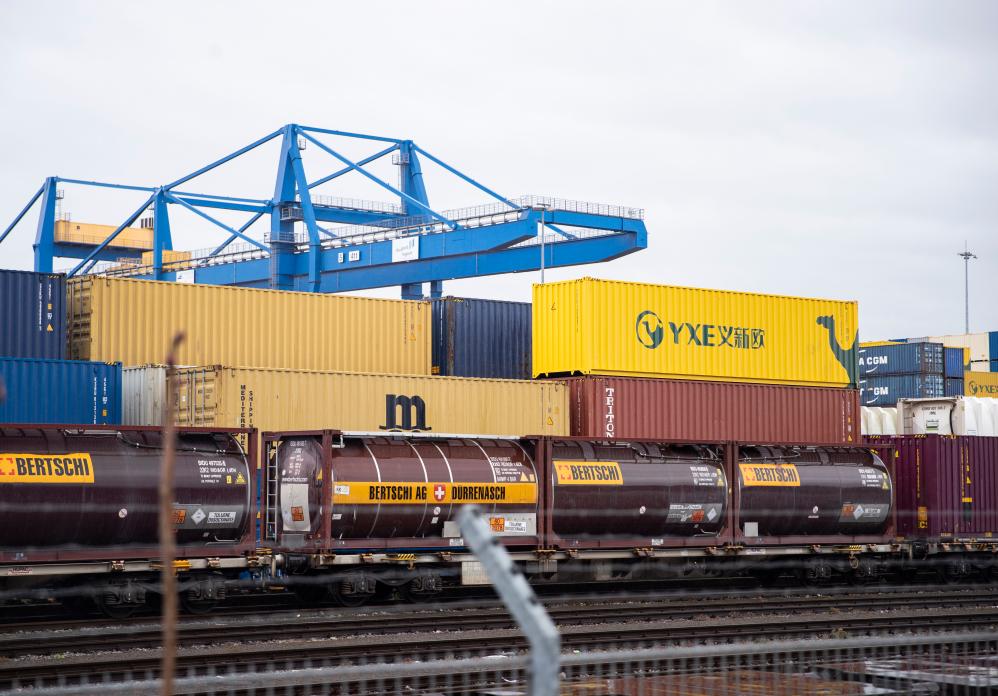
The Duisburg Port DIT Freight Terminal, located on the west bank of the Rhine River, is the main operating station of the China Europe freight train. Currently, approximately 60 China Europe freight trains arrive here every week. Several cranes several tens of meters high and various loading and unloading equipment work closely together to neatly stack the unloaded containers, forming endless “small mountains”. Subsequently, these vast and diverse Chinese goods were transported by water, rail, or road to surrounding cities and other European countries.
“For Chinese and European enterprises, the China Europe freight train connecting China and Duisburg has always been a good alternative to sea and air transportation, and will definitely continue to actively develop in the future,” Link said.
Twin Cities Joining Hands for Win Win
Building a country through industry and being pragmatic is the clear foundation of Sino German cooperation. The China Europe freight train connects cities between China and Germany, and also witnesses the continuous development of practical cooperation between the two countries.
This year marks the 10th anniversary of the establishment of a comprehensive strategic partnership between China and Germany. German Chancellor Scholz made his second visit to China during his term in April, and chose Chongqing as his first stop. During his visit to Chongqing, he stated that German Chinese enterprises have close cooperation in technology, economy and trade, especially in the automotive industry. The German side is willing to continue to deepen friendly exchanges between Germany and China, and promote cooperation between the two sides to a new level.
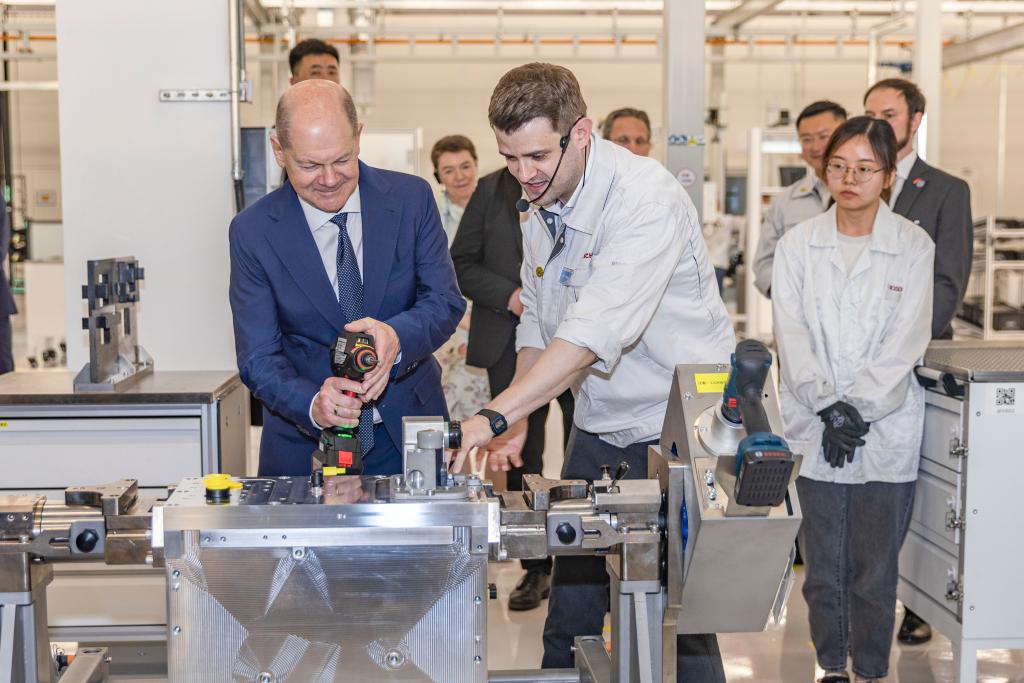
According to Yan Lei, the head of Tuanjie Village Station at Xinglongchang Station in Chongqing, there is currently at least one train heading towards Duisburg every day, loaded with electronic products, mechanical parts, daily necessities and other goods; The number of return trains is basically balanced with the number of outbound trains, carrying a wide variety of goods, including whole vehicles and spare parts, mechanical parts, medical equipment, food, daily necessities, chemical materials, etc. Currently, Chongqing has normalized the operation of four direct train routes to Germany, and has established more than ten distribution points in Germany. Special products from many parts of Chongqing, such as flower lanterns and handmade lanterns from Xiushan, also travel abroad by train.
Duisburg is located in the important industrial area of Ruhr, Germany, and was prosperous due to coal and steel. Later, it faced environmental pressure and transformation difficulties for a considerable period of time. The modern logistics industry brought by the China Europe freight train has greatly stimulated the new vitality of this city. According to statistics from Duisburg Port Group, about one-third of the total trade between China and Europe through the China Europe freight train passes through the Duisburg logistics hub, creating a large number of employment opportunities for Duisburg, which is undergoing industrial restructuring.
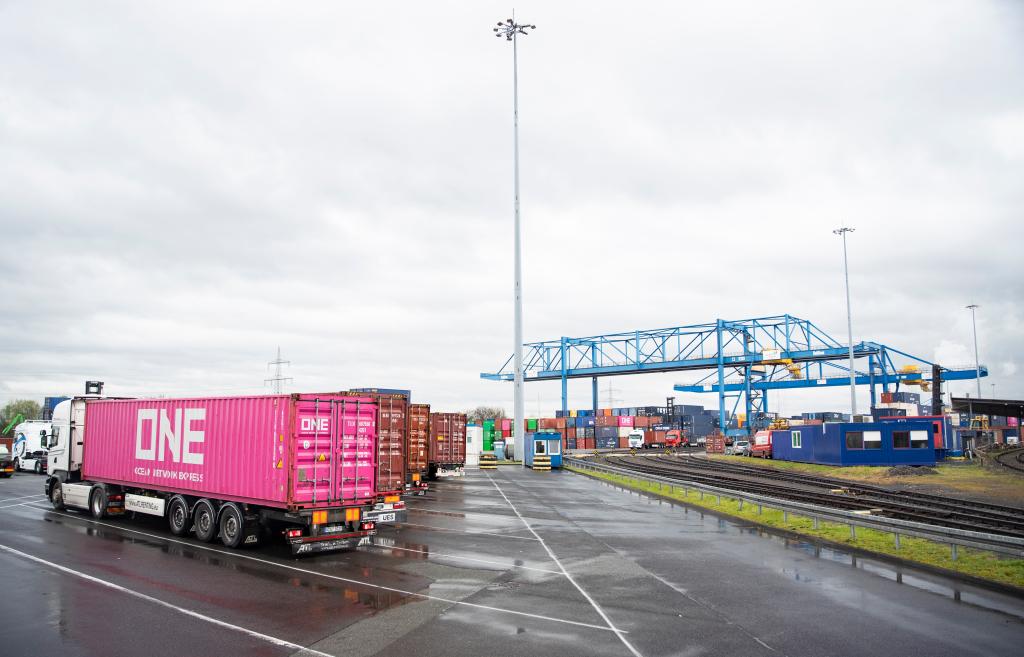
Link told reporters that in the past decade, Duisburg has attracted a large number of Chinese companies to settle down. Currently, there are more than 100 Chinese companies in the city, covering various industries such as logistics and e-commerce. He said that Duisburg is an open city, and professional and management talents from China have “promoted the economic development of this city.”.
In Bane’s view, Chinese companies are turning their attention to Duisburg, which has benefited Duisburg a lot. “This is a win-win situation.”.
Yuxin Europe Germany Branch is one of the hundreds of Chinese enterprises settled in Duisburg, where the company has established overseas warehouses. Entering the spacious and bright warehouse, the reporter met Thomas Krainiki, a German employee who was operating a forklift to load and unload goods. He was 57 years old and had been working here for over 4 years. During this period, Krainiki not only witnessed the continuous enrichment of goods categories on the train, but also personally felt that the fast and efficient China Europe train brought abundant business opportunities to enterprises and promoted trade exchanges between China and Europe. “I am very willing to work here until retirement,” Krainiki said.
“There are more and more Chinese elements”
From the Jialing River to the Rhine River, for over a decade, the China Europe freight train has not only promoted the circulation of goods and services, but also tightened the bond between China and Germany in cultural exchanges and people to people communication.
Herbert, an elderly resident of Duisburg, is a fan of Chinese culture and has been self-learning Chinese for over 5 years. “There are more and more Chinese elements in Duisburg, and Chinese movies, dragon boat racing, and restaurants bring a charming Chinese trend. Trucks carrying Chinese goods can often be seen passing through the streets, which makes me interested in this Asian country thousands of miles away,” he told reporters.
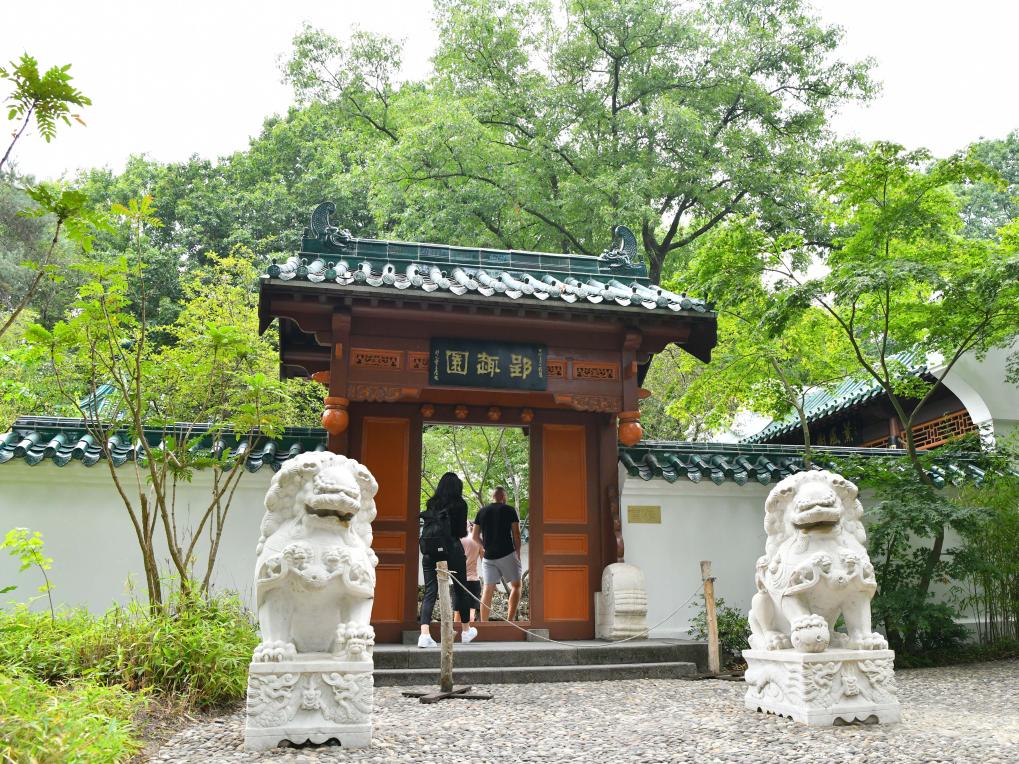
Herbert said that whenever Duisburg holds events related to China, he will take the time to take a look, “appreciating authentic Chinese culture and directly interacting with the Chinese people always brings me a unique experience.”.
Since 2018, the three important cities of D ü sseldorf, Cologne, and Duisburg in North Germany have taken turns organizing the “China Festival” activities, becoming an important platform for cultural exchanges between China and Germany and one of the local themed cultural activities. Herbert showed a beautiful handmade kite he harvested during the “China Festival” in Duisburg to reporters, and said: “I am very impressed by the grand initiative of jointly building the” the Belt and Road “with these high-quality and lovely Chinese goods shipped directly from China Europe Express to Germany. I have lived in Duisburg for more than 40 years, and am happy to see China help this city stimulate greater potential.”
In mid March, Link led a delegation to visit Wuhan, which has become a sister city with Duisburg. He said that as the first pair of friendly cities between China and Germany, Wuhan and Duisburg have many similarities in geographical advantages, economic transformation and other aspects. The two sides have had exchanges and cooperation for more than 40 years. “By jointly building the the Belt and Road, we can be more closely connected”.
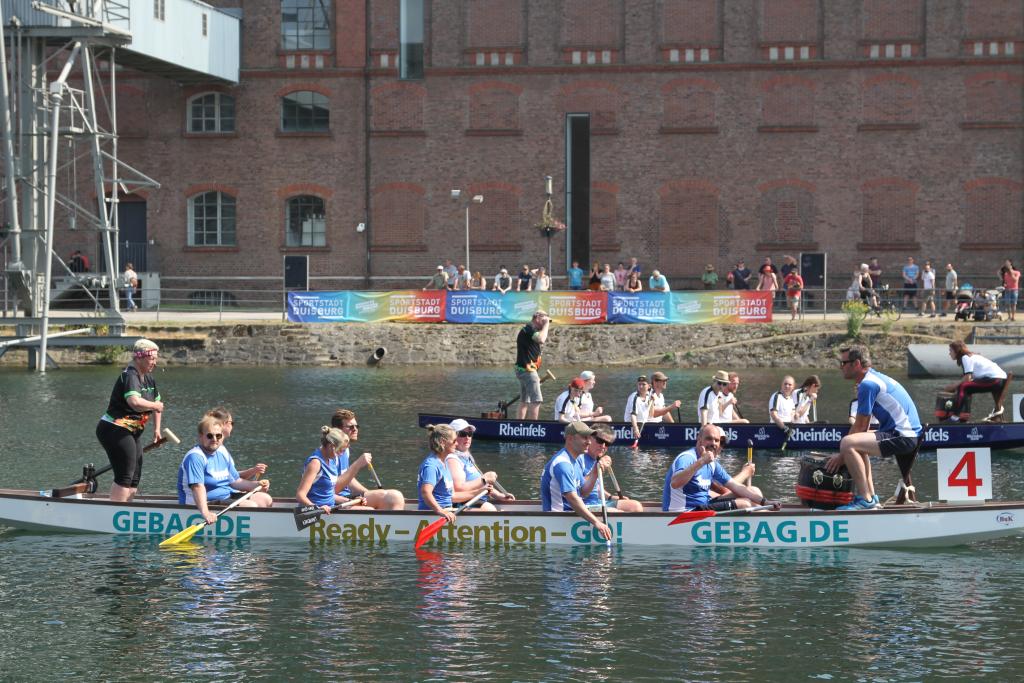
Nowadays, Duisburg holds cultural activities such as fun dragon boat races every June. During the event, Link received two German picture books introducing Wuhan as gifts. He said he wants to read these two books with his daughter, experience the charm of Chinese culture, and better understand China.
Planning: Ni Siyi and Guo Jianye
Producer: Han Mo
Coordinator: Yan Junyan, Sun Hao
Reporter: Zhang Dailei, Che Yunlong, Shan Weiyi, Li Aibin, Zhang Qin, Liu Enli, Zhao Xiaoshuai, Tang Yi, Li Fuyu, Yang Zhennan
Editor: Zhang Yuan, Qiao Jihong, Xue Lei, Lin Xiaochun, Xu Liyu, Xu Xiaolei
Photography: Huang Wei, Zhang Fan, Shan Weiyi, Ren Pengfei
Produced by the International Department of Xinhua News Agency
